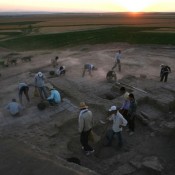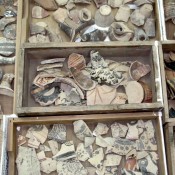Humans and other living beings are constantly shedding DNA, and this DNA can be preserved in archaeological sediments. In contrast to fossil skeletal remains like bones and teeth, these sediments are abundant at nearly every archaeological site. This ancient human DNA from sediments may function as forensic “breadcrumbs” to trace the spaces inhabited by past humans, their life histories and socioeconomical structures.
The research project UNEARTH will integrate genetic, bioarchaeological, and isotope analyses to uncover socioeconomic stratifications and their role in prehistoric neighborhood organization more than 5,000 years ago during the Early Bronze Age. “Our project will reveal inheritance patterns and social organization, and map individuals from a cemetery back onto the spaces where they left their genetic traces – their homes”, says research group leader Benjamin Vernot. “Using ancient DNA from sediments we will be able to analyze archaeological sites, cultures and time periods that lack associated human remains.”
UNEARTH aims to elucidate the lived experiences of prehistoric Europeans in unprecedented detail. An international team of scientists, including Knut Rassmann of the German Archaeological Institute in Frankfurt, and Jozef Bátora of the Slovak Academy of Sciences in Bratislava will contribute to this ERC project.
The highly competitive ERC Consolidator Grants support promising scientists whose doctorates date back seven to twelve years. They receive up to two million euros for their research projects.





